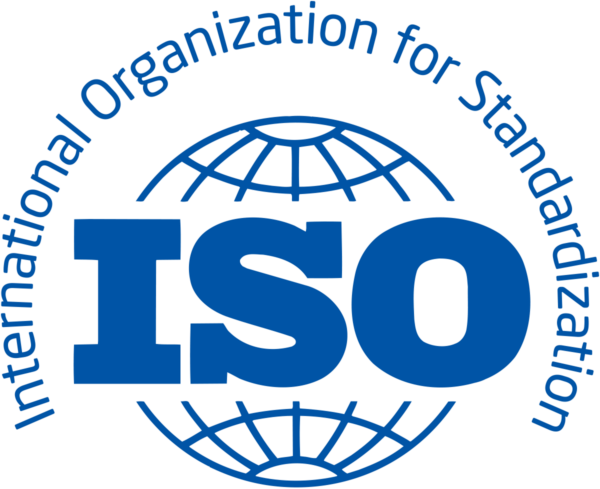Brief Overview
ISO, which stands for the International Organization for Standardization, is an independent, non-governmental international organization that develops and publishes voluntary international standards. These standards cover a wide range of industries and sectors, providing specifications for products, services, and systems to ensure quality, safety, and efficiency on a global scale.
Detailed Information
ISO was founded in 1947 and is headquartered in Geneva, Switzerland. It comprises national standards bodies from various countries, each representing their nation’s interests in the development of international standards. The organization operates on a consensus-based approach, where stakeholders collaborate to create standards that meet the needs of diverse industries and markets.
ISO standards serve multiple purposes, including facilitating trade, enhancing interoperability, promoting innovation, and supporting sustainable development. By providing a common framework and terminology, ISO standards enable organizations to streamline processes, improve compatibility, and demonstrate conformity to internationally recognized benchmarks.
Key Features of ISO
Some key features of ISO include:
- Voluntary Adoption: ISO standards are voluntary and can be adopted by organizations based on their specific requirements and objectives.
- Global Reach: ISO standards are developed through a global consensus process, ensuring their relevance and applicability across borders and industries.
- Continuous Improvement: ISO standards undergo periodic review and revision to reflect advancements in technology, changes in market needs, and emerging best practices.
- Multi-sectoral Coverage: ISO develops standards for various sectors, including manufacturing, healthcare, information technology, agriculture, energy, and environmental management.
- Certification and Compliance: Organizations can obtain certification to ISO standards through accredited certification bodies, demonstrating their commitment to quality management, environmental responsibility, and other key areas.
Types of ISO
ISO standards are categorized into different series, each addressing specific areas of interest. Some prominent ISO series include:
- ISO 9000 Series: Quality management systems standards, focusing on customer satisfaction, process improvement, and organizational effectiveness.
- ISO 14000 Series: Environmental management standards, addressing issues such as pollution prevention, resource efficiency, and sustainability.
- ISO 27000 Series: Information security management standards, covering practices for protecting sensitive information and managing cybersecurity risks.
- ISO 45000 Series: Occupational health and safety management standards, promoting a safe and healthy work environment for employees.
- ISO 50001: Energy management standards, helping organizations improve energy performance, reduce costs, and mitigate climate change impacts.
Ways to Use ISO
Organizations can leverage ISO standards in various ways, including:
- Quality Management: Implementing ISO 9001 to enhance product quality, customer satisfaction, and operational efficiency.
- Environmental Protection: Adopting ISO 14001 to manage environmental risks, comply with regulations, and promote sustainable practices.
- Information Security: Implementing ISO 27001 to establish an information security management system, safeguarding sensitive data and preserving confidentiality, integrity, and availability.
- Occupational Health and Safety: Adhering to ISO 45001 to identify and mitigate workplace hazards, prevent injuries and illnesses, and promote a culture of safety.
- Energy Efficiency: Implementing ISO 50001 to optimize energy use, reduce greenhouse gas emissions, and achieve cost savings through improved energy management practices.
Challenges and Solutions
While ISO standards offer numerous benefits, organizations may encounter challenges in their implementation and maintenance. Some common issues include:
- Complexity: ISO standards can be complex and require significant resources for implementation and compliance.
- Cost: Obtaining certification to ISO standards may involve substantial costs, including fees for training, audits, and certification.
- Resistance to Change: Implementing ISO standards may face resistance from employees, stakeholders, or organizational culture.
- Documentation Burden: Compliance with ISO standards often involves extensive documentation and record-keeping requirements.
To address these challenges, organizations can:
- Plan and Prioritize: Develop a clear implementation plan, prioritize initiatives based on risk and impact, and allocate resources effectively.
- Engage Stakeholders: Involve employees, management, and external partners in the implementation process, fostering buy-in and commitment to the standards.
- Streamline Processes: Simplify and standardize processes, eliminate redundant activities, and leverage technology to automate documentation and reporting.
- Continuous Improvement: Embrace a culture of continuous improvement, monitor performance metrics, solicit feedback, and adapt processes to evolving needs and requirements.
Characteristics and Comparisons
| Feature | ISO | Similar Terms |
|---|---|---|
| Scope | Global | Varied |
| Development Process | Consensus-based | Varies |
| Voluntary Compliance | Yes | Varies |
| Industry Coverage | Multi-sectoral | Varies |
| Certification Options | Yes | Some |
| Continuous Improvement | Yes | Some |
Future Perspectives and Technologies
The future of ISO standards is closely tied to emerging technologies and evolving societal trends. Some key areas of focus include:
- Digital Transformation: Addressing challenges and opportunities associated with digitalization, such as cybersecurity, data privacy, and interoperability.
- Sustainability: Enhancing standards related to environmental management, renewable energy, circular economy, and responsible consumption.
- Artificial Intelligence: Developing standards for ethical AI, algorithmic transparency, bias mitigation, and AI governance.
- Smart Manufacturing: Supporting the adoption of Industry 4.0 technologies, such as IoT, robotics, and additive manufacturing, to improve efficiency and competitiveness.
VPN and ISO
VPN (Virtual Private Network) services can complement ISO standards by providing secure and private communication channels for organizations that need to adhere to ISO’s information security requirements. VPNs encrypt internet traffic, protecting sensitive data from interception and unauthorized access. Additionally, VPNs can help organizations comply with ISO 27001 by ensuring secure remote access to corporate networks and cloud-based resources.
Resources for More Information
For further information about ISO (International Organization for Standardization), you can visit the following resources:
This concludes the comprehensive overview of ISO (International Organization for Standardization) and its significance in global standardization efforts.


